Here when you need us!
HVAC professionals often charge higher fees due to several factors. Firstly, their specialized knowledge and skills require extensive training and ongoing education, contributing to higher labor costs. Additionally, HVAC technicians invest in specialized tools and equipment to diagnose and repair complex heating, ventilation, and air conditioning systems. The overhead costs associated with running a licensed and insured HVAC business, such as insurance, licensing fees, and maintaining service vehicles, also contribute to the overall service charges. Moreover, HVAC work often involves emergency calls, requiring technicians to be available outside regular working hours, which may incur additional costs. The complexity and critical nature of HVAC systems also justify the higher fees, as accurate and reliable repairs are crucial for the comfort and safety of households.
Whether you should replace your AC with a heat pump depends on your specific needs and circumstances. Heat pumps can serve both heating and cooling functions, making them more versatile. If you live in a moderate climate and want a single system for both heating and cooling, a heat pump could be a cost-effective and energy-efficient choice. However, if you already have a functioning air conditioning system and a separate heating system, it might not be necessary to replace it with a heat pump unless you specifically desire the dual functionality. It’s advisable to consult with a professional HVAC technician to assess your home’s requirements and determine the most suitable option based on factors such as climate, energy efficiency goals, and existing infrastructure.
Poor indoor air quality can manifest through various symptoms, including respiratory issues such as coughing, sneezing, and shortness of breath. Individuals may also experience irritation of the eyes, nose, or throat, as well as persistent headaches or fatigue. Allergies and skin problems may worsen, and occupants might notice unpleasant odors or an increased prevalence of dust and mold. If you consistently observe these symptoms, it is crucial to address indoor air quality concerns by identifying and mitigating potential sources of pollution, such as inadequate ventilation, pollutants from household products, or issues with heating and air conditioning systems. Seeking professional advice may be necessary to improve and maintain a healthier indoor environment.
Yes, home air quality tests can be worth it, as they provide valuable insights into the air you breathe indoors. These tests assess levels of pollutants, allergens, and other contaminants, helping you identify potential health risks and make informed decisions to improve air quality. If you have concerns about allergies, respiratory issues, or want to ensure a healthy living environment, a home air quality test can pinpoint areas for improvement, guiding you in taking necessary steps such as ventilation improvements, air purifiers, or adjustments to cleaning routines. Regular monitoring can contribute to a healthier home environment, making the investment in an air quality test worthwhile for many individuals and families.
Five common types of HVAC maintenance include regular cleaning to prevent dust and debris buildup, routine air filter replacement to ensure good air quality and efficiency, inspection and cleaning of coils for proper heat exchange, checking and maintaining proper refrigerant levels, and inspecting electrical components such as connections and motors to prevent system failures. Additionally, periodic assessment of the overall system performance is crucial, addressing any issues promptly to ensure the reliable operation of HVAC equipment.
A common cause of plumbing leaks is often attributed to worn-out or deteriorated pipe materials. Over time, pipes can degrade due to factors like corrosion, rust, or mineral buildup, leading to weakened spots and eventual leaks. Additionally, shifting soil, temperature fluctuations, and poor installation practices can contribute to pipe damage, resulting in water leaks within a plumbing system. Regular inspections and timely replacement of aging pipes can help prevent such issues and maintain a watertight plumbing infrastructure.
In residential homes, one of the most common plumbing items to fail is the water heater. Over time, sediment buildup, corrosion, and wear on components can lead to issues such as leaks, inadequate heating, or a complete failure of the water heating system. Regular maintenance, including flushing the tank and checking for signs of wear, can help prolong the life of a water heater and reduce the likelihood of unexpected failures.
Sewer pipes can be expensive due to various factors, including the materials used, installation complexity, and labor costs. High-quality materials such as durable PVC, cast iron, or other corrosion-resistant alloys contribute to the overall cost. Additionally, the installation process can be intricate, involving excavation, proper alignment, and connection to the existing sewer system. Labor costs, equipment, and compliance with local building codes also impact the overall expense. Moreover, the need for skilled professionals and specialized equipment further adds to the total cost of sewer pipe installation, making it a significant investment for homeowners and municipalities alike.
Carmel Air Conditioning
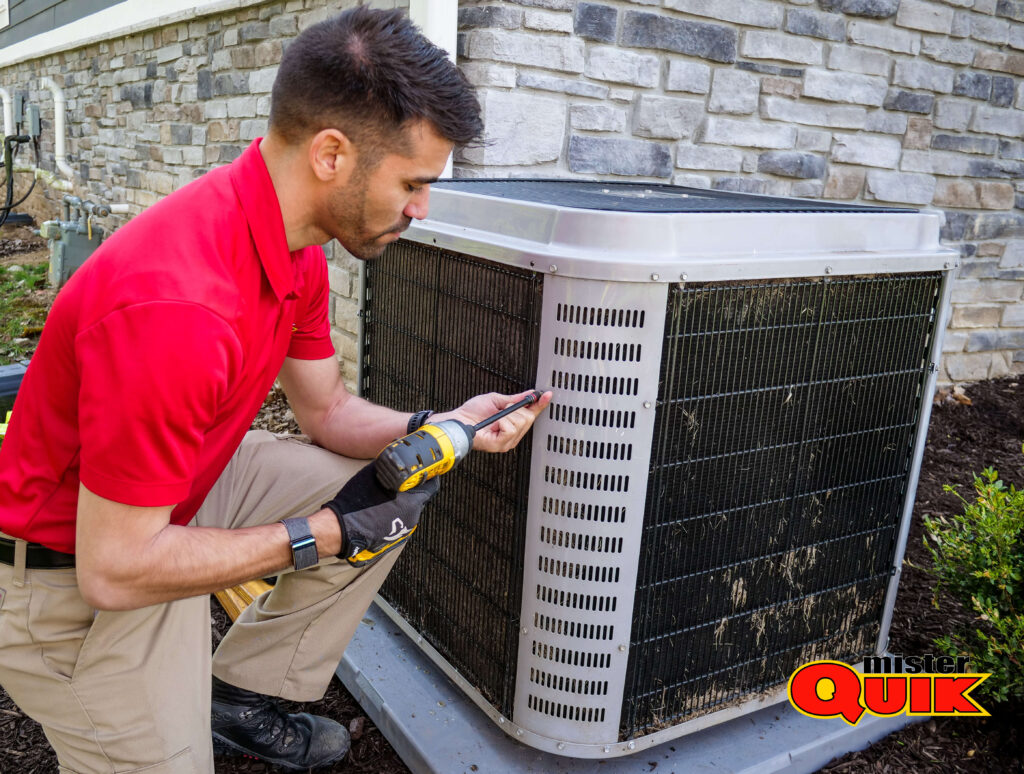
Air Conditioning Units
Air conditioning units are essential for maintaining a comfortable temperature in your home during the hot summer months. Here’s a basic overview of different types of AC units:
- Central air conditioners: These units cool the entire home using a network of ducts that distribute cool air throughout the house. They are typically installed outside the home and connected to an indoor air handler unit.
- Window air conditioners: These units are installed in a window frame and cool a single room. They are a more affordable option but less efficient than central air conditioning.
- Ductless mini-split systems: These systems consist of an outdoor unit and one or more indoor units mounted on walls. They offer more targeted cooling and are suitable for homes without existing ductwork.
Air Conditioner Repair
When your air conditioner malfunctions, it’s crucial to address the issue promptly to maintain comfort and avoid further problems. Here are some common signs that your AC might need repair:
- Warm air coming from vents: This is the most obvious sign that your AC is not working properly.
- Unusual noises: Grinding, clanging, or other unfamiliar noises can indicate mechanical issues within the unit.
- Leaking water: Leaks around the indoor unit or outside near the condenser could signify clogged condensate lines, drain problems, or other issues.
- Increased energy bills: If your energy bills spike unexpectedly, it might be due to an inefficiently operating AC unit.
If you experience any of these signs, contact a qualified air conditioning technician for prompt and reliable repair services.
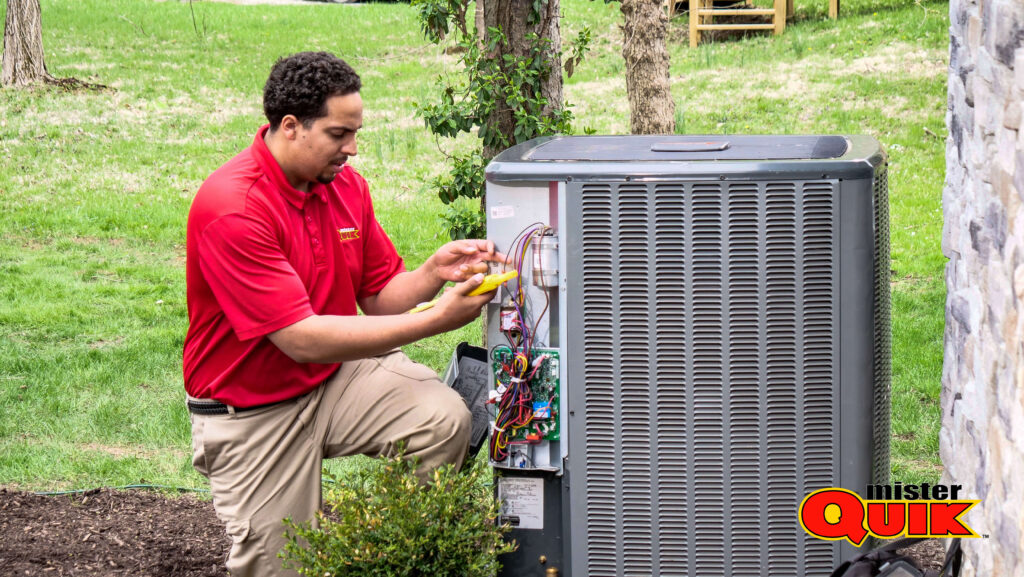

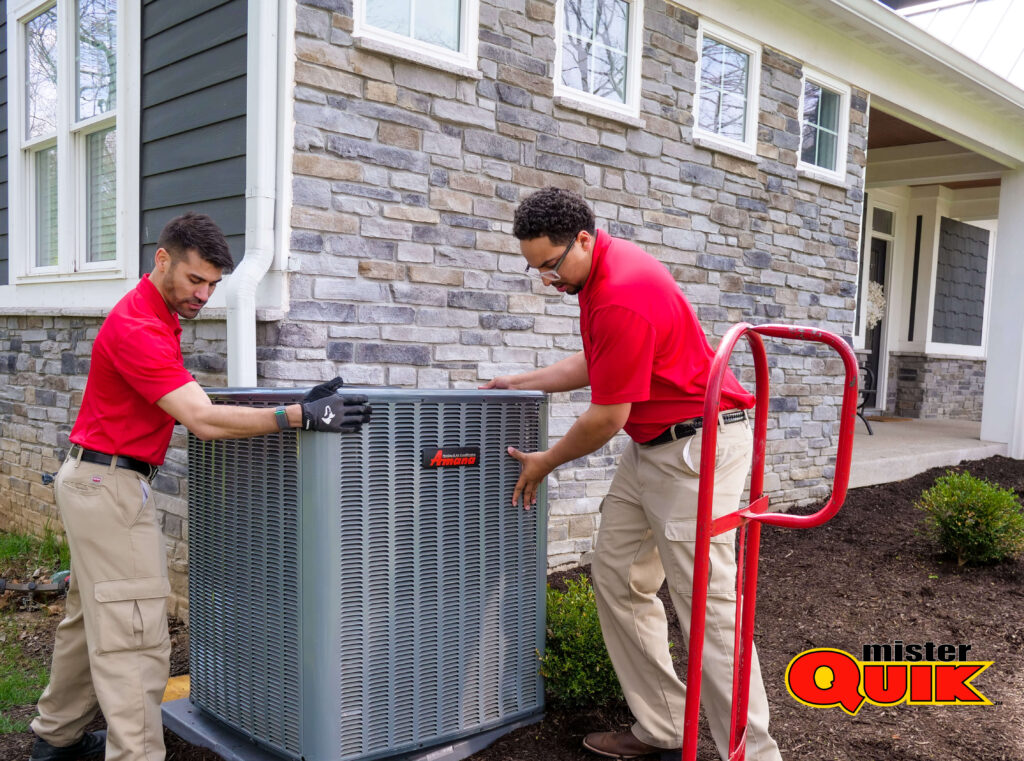

AC Installation
If your air conditioner is old, inefficient, or beyond repair, you might consider replacing it with a newer, more efficient model. Here are some factors to consider when choosing a new AC unit:
- Size: Selecting the right size unit for your home is crucial for efficient cooling and avoiding costly oversizing or undersizing. Consult an HVAC (Heating, Ventilation, and Air Conditioning) professional to determine the appropriate size for your specific needs.
- SEER rating: The Seasonal Energy Efficiency Ratio (SEER) measures an AC unit’s cooling efficiency. Higher SEER ratings indicate better efficiency and potentially lower energy bills.
- Features: Consider additional features like variable-speed motors, smart controls, and air filtration capabilities depending on your needs and budget.
Mister Quik can assist you in choosing the right AC unit for your home and provide professional installation services to ensure optimal performance and efficiency.
Central Air Conditioning
Central air conditioning is the most common type of whole-home cooling system, providing a comfortable and consistent temperature throughout your entire house. It works by:
- Removing heat from indoor air:
- The system draws warm air from inside your home through return air vents.
- This air passes over a cold evaporator coil, which is filled with a refrigerant.
- The refrigerant absorbs heat from the air, causing it to cool down.
- Releasing cool air back into your home:
- The cooled air is then blown by a blower fan through a system of ducts.
- These ducts deliver the cool air to vents located throughout your house, lowering the overall temperature.
- Releasing heat outdoors:
- The heated refrigerant from the evaporator coil travels through copper tubing to the outdoor condenser unit.
- In the condenser, a fan blows air over the hot refrigerant coils, transferring the heat outside your home.
- The cooled refrigerant then travels back to the evaporator coil to repeat the cycle.
Benefits of Central Air Conditioning:
- Consistent cooling: Cools your entire home evenly, maintaining a comfortable temperature throughout.
- Improved comfort: Eliminates hot spots and creates a more pleasant living environment, especially during hot summer months.
- Air filtration: Some systems offer air filtration capabilities, removing dust, allergens, and other airborne particles, improving indoor air quality.
- Remote control: Many systems come with thermostats and remote controls, allowing for convenient temperature adjustment.



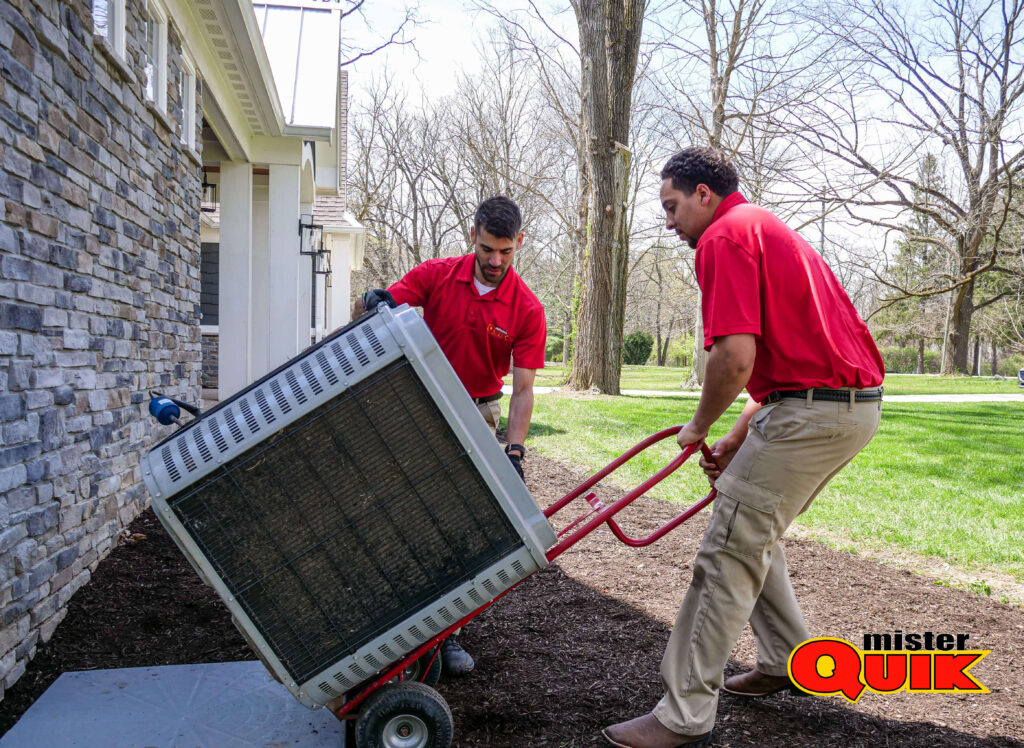

Carmel Heating
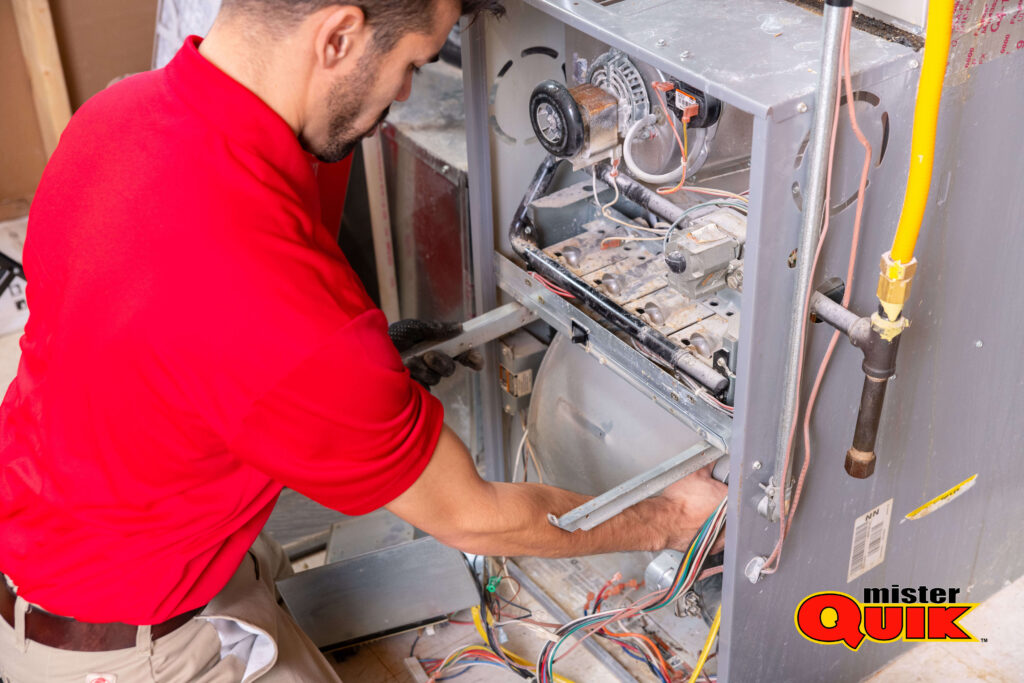




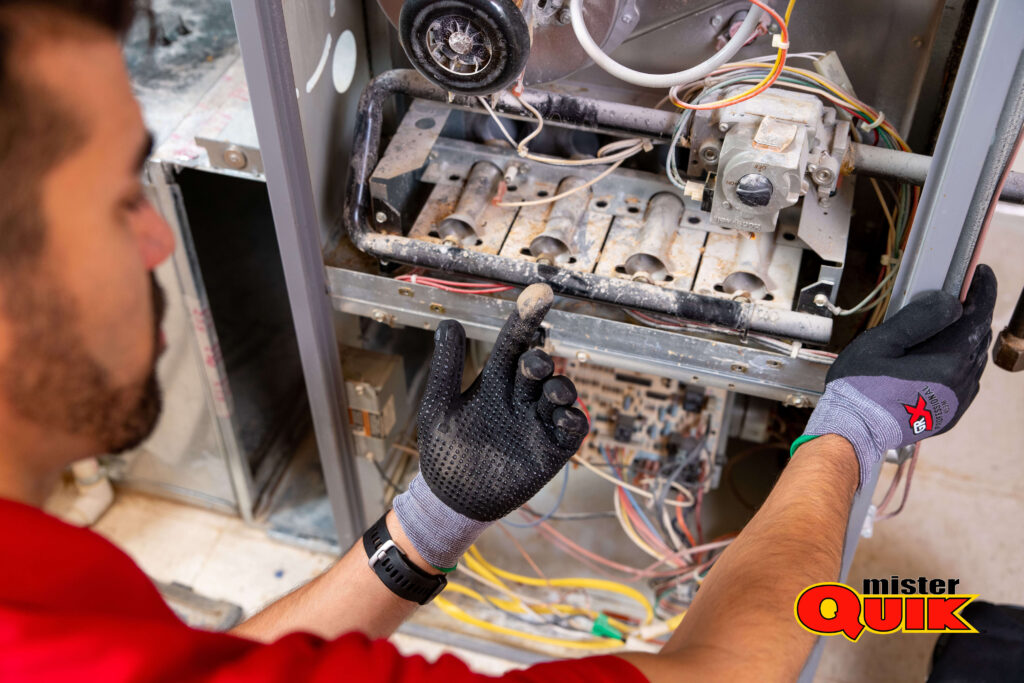

Heating Systems
A heating system is a mechanism designed to maintain a comfortable and consistent temperature within a building, especially during colder months. These systems play a crucial role in creating a warm and livable environment, particularly in regions with harsh winters.
Function:
- Heating systems generate heat using various fuels like natural gas, propane, oil, or electricity.
- The generated heat is then transferred and distributed throughout the building using different methods, such as forced air, hot water, or steam.
- Common methods of heat distribution include:
- Forced air: Warm air is circulated through a network of ducts and vents.
- Hydronic (water-based): Hot water travels through pipes to radiators or radiant floor heating systems, releasing heat into the surrounding air.
- Steam: Steam generated in a boiler travels through pipes to radiators, releasing heat into the room.
Types of Heating Systems:
- Furnaces: These are common heating systems that burn fuel to generate heat, transferring it to air through a heat exchanger. The warmed air is then circulated throughout the house using a duct system. They come in various types based on the fuel source they use, such as gas furnaces, oil furnaces, and electric furnaces.
- Boilers: Unlike furnaces, boilers use hot water or steam to distribute heat. They heat water or create steam using various fuels like natural gas, propane, oil, or electricity and distribute them through pipes to radiators or radiant floor heating systems in your home. Boilers come in two main types: hydronic boilers (heating water) and steam boilers (generating steam).
- Heat pumps: These innovative systems offer a unique approach by acting as both a heater and an air conditioner. They extract heat from the outdoor air in the winter to warm your home and reverse the process in the summer, acting like an AC to remove heat from your home.
Furnace
A furnace is a popular heating system that uses natural gas, propane, oil, or electricity to generate heat. Here’s how it typically works:
- Fuel source: The furnace burns the chosen fuel source (gas, oil, etc.) in a combustion chamber, generating heat.
- Heat transfer: The heat is transferred from the combustion chamber to a heat exchanger, often made of metal.
- Air circulation: A blower fan inside the furnace pushes air over the hot heat exchanger, warming the air.
- Distribution: The warm air is then distributed throughout your home through a network of ducts.
Types of furnaces:
- Gas furnaces: The most common type, offering efficient heating with natural gas or propane.
- Oil furnaces: Less common than gas furnaces, often used in areas where natural gas is unavailable.
Electric furnaces: Generally less efficient than gas or oil furnaces, but can be a viable option in areas with lower electricity costs or limited access to other fuel sources.
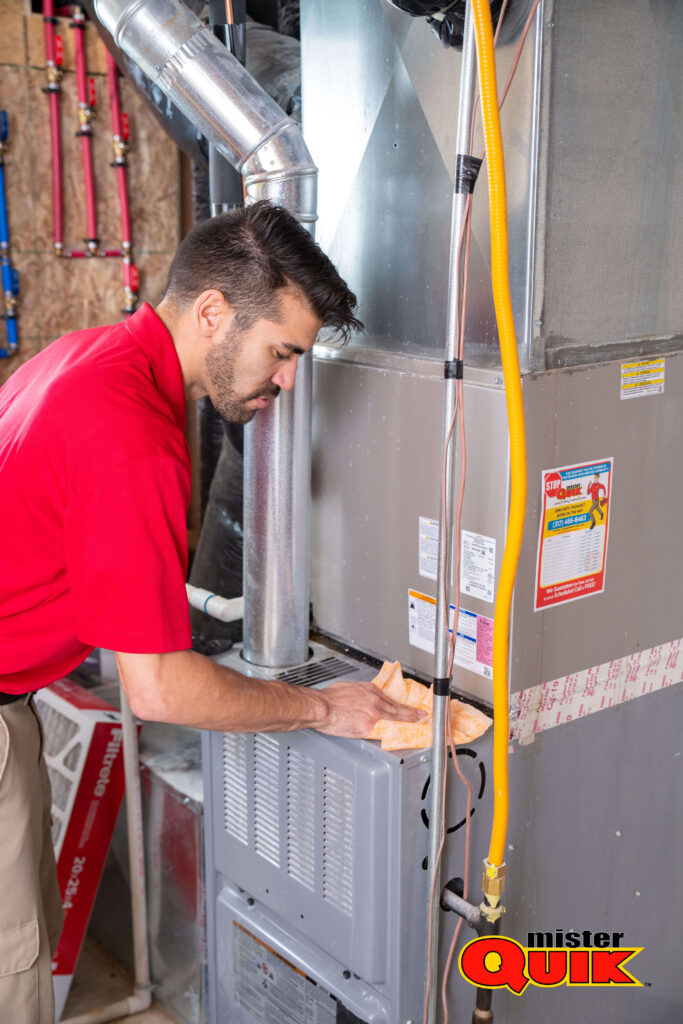






Heat Pumps
Heat pumps offer a unique approach to heating and cooling your home, acting as a reversible air conditioner.
- Heating mode: During the winter, a heat pump extracts heat from the cold outdoor air and transfers it to your home’s indoor air through a heat exchanger, providing warmth.
- Cooling mode: In the summer, the process reverses, acting like a traditional air conditioner by extracting heat from your home’s indoor air and releasing it outdoors.
Benefits of heat pumps:
- Energy efficiency: Can be more efficient than furnaces and boilers, especially in moderate climates.
- Dual functionality: Provides both heating and cooling in a single system.
The best heating system for your home depends on various factors, including:
- Climate: Consider the average temperatures in your area and the heating demands throughout the year.
- Fuel availability and cost: Evaluate the availability and cost of different fuel sources in your area.
- Home size and insulation: The size and insulation level of your home will influence the heating capacity required.
- Budget: Consider the initial installation cost and ongoing maintenance expenses of different systems.
Consulting with an HVAC professional can help you assess your specific needs and choose the most suitable and efficient heating system for your home.
Ductless Mini Split
Ductless mini-split systems, also known as mini-splits, are a popular alternative to traditional central air conditioning and heating systems, particularly in homes without existing ductwork. They offer several advantages and are becoming increasingly common.
How They Work:
- Individual units: Unlike central systems, mini-splits consist of separate indoor units mounted on walls in different rooms and one outdoor unit located outside the house.
- Heat pump technology: Most mini-splits use heat pump technology, which allows them to both heat and cool your home efficiently.
- Refrigerant circulation: A refrigerant circulates between the indoor and outdoor units, absorbing heat from the indoor air in cooling mode and releasing it outside. The process reverses in heating mode, extracting heat from the outdoor air and transferring it to your home.
- Targeted comfort: Each indoor unit can be controlled independently, allowing you to adjust the temperature in different rooms for personalized comfort.
Benefits of Ductless Mini Splits:
- Energy efficiency: Heat pump technology can be highly energy-efficient compared to traditional systems, especially in moderate climates.
- Zone control: Individual unit control allows for customized comfort in different areas of your home.
- Easy installation: No ductwork is needed, making installation simpler and potentially less disruptive compared to central systems.
- Suitable for various spaces: Ideal for homes without existing ductwork, additions, basements, and even small apartments.
- Quiet operation: Modern mini-split systems operate relatively quietly, both indoors and outdoors.
Things to Consider:
- Cost: While upfront costs can be higher than window air conditioners, they might be comparable to central air conditioning systems in some cases, particularly when considering installation costs and long-term efficiency.
- Professional installation: While generally easier to install than central systems, professional installation is still recommended for optimal performance and safety.
- Multiple units: Depending on the size and layout of your home, you might need multiple indoor units to achieve consistent cooling and heating throughout the entire space.
Overall, ductless mini-split systems offer a versatile and efficient solution for heating and cooling your home, especially if you lack existing ductwork or desire individual room temperature control. Consulting with an HVAC professional can help you determine if a mini-split system is the right choice for your specific needs and budget.
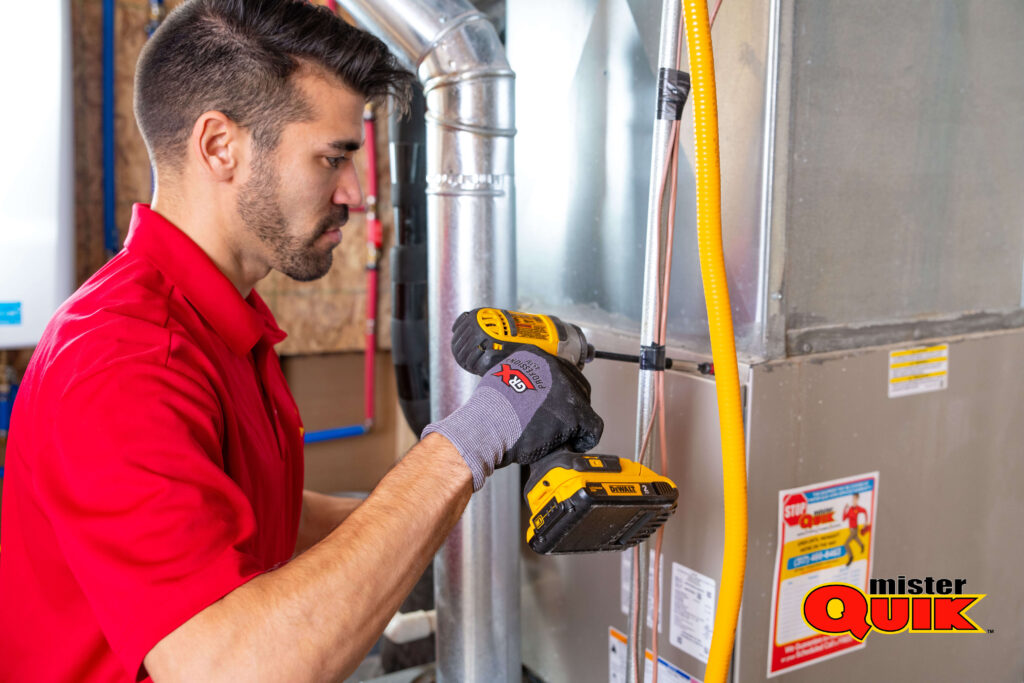

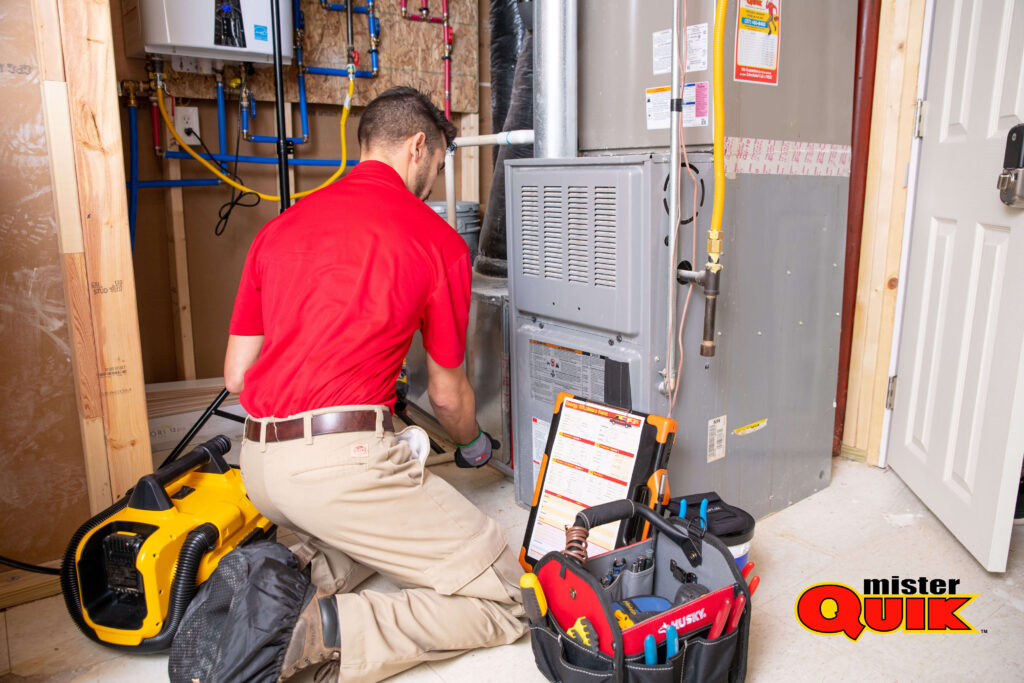


Carmel Plumbing
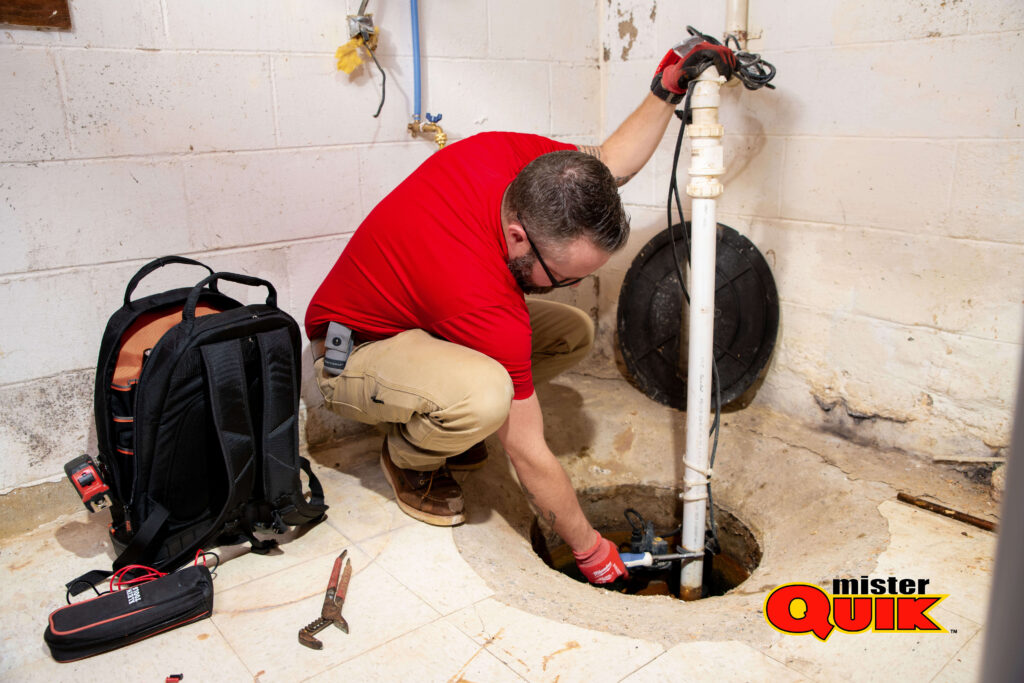

Plumbers Near Me
Finding a reliable and qualified plumber near Carmel, Indiana, is crucial for any plumbing issue. Here’s what you need to know:
Mister Quik Home Services:
- Located at 11644 North Meridian Street, Carmel, IN 46032.
- Offers a wide range of plumbing services, including repairs, installations, and maintenance.
- Provides emergency plumbing service for urgent issues.
- Highly rated by customers for their expertise, reliability, and upfront pricing.
Plumbing Services
Plumbing Services:
- Leak repair: Addressing leaks in faucets, pipes, drains, toilets, and other plumbing fixtures.
- Drain cleaning: Clearing clogged drains in sinks, bathtubs, showers, and toilets.
- Fixture installation: Installing new faucets, toilets, sinks, showers, garbage disposals, and other plumbing fixtures.
- Water heater repair and replacement: Repairing or replacing malfunctioning water heaters.
- Toilet repair and replacement: Fixing common toilet issues like running toilets, leaks, and clogs.
- Garbage disposal repair and replacement: Addressing issues with garbage disposals.
Sewer line repair and replacement: Repairing or replacing damaged sewer lines.
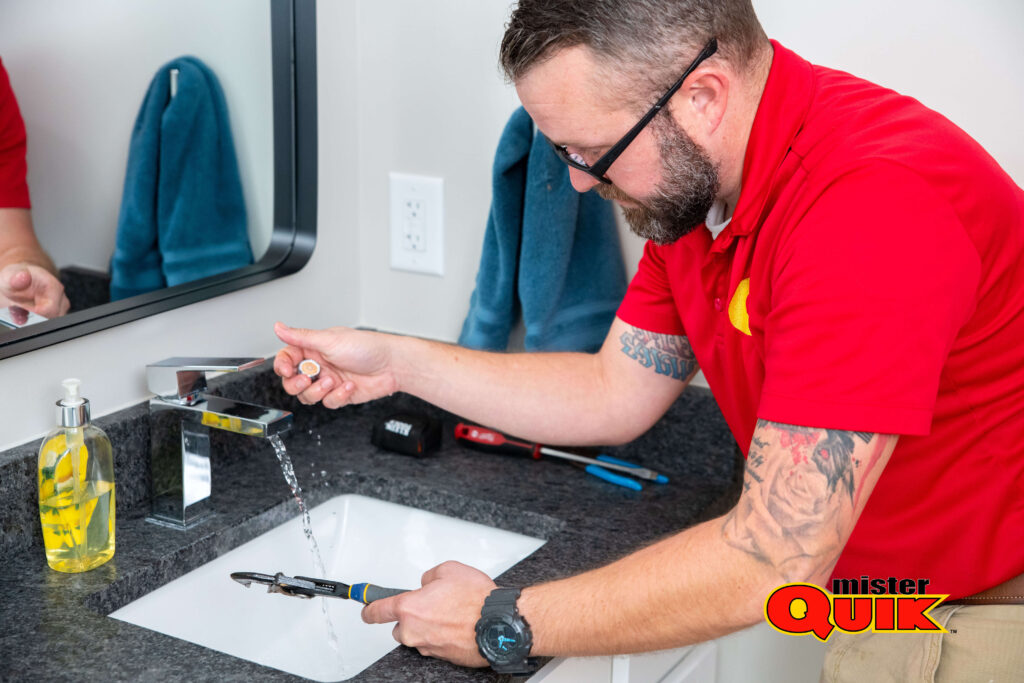

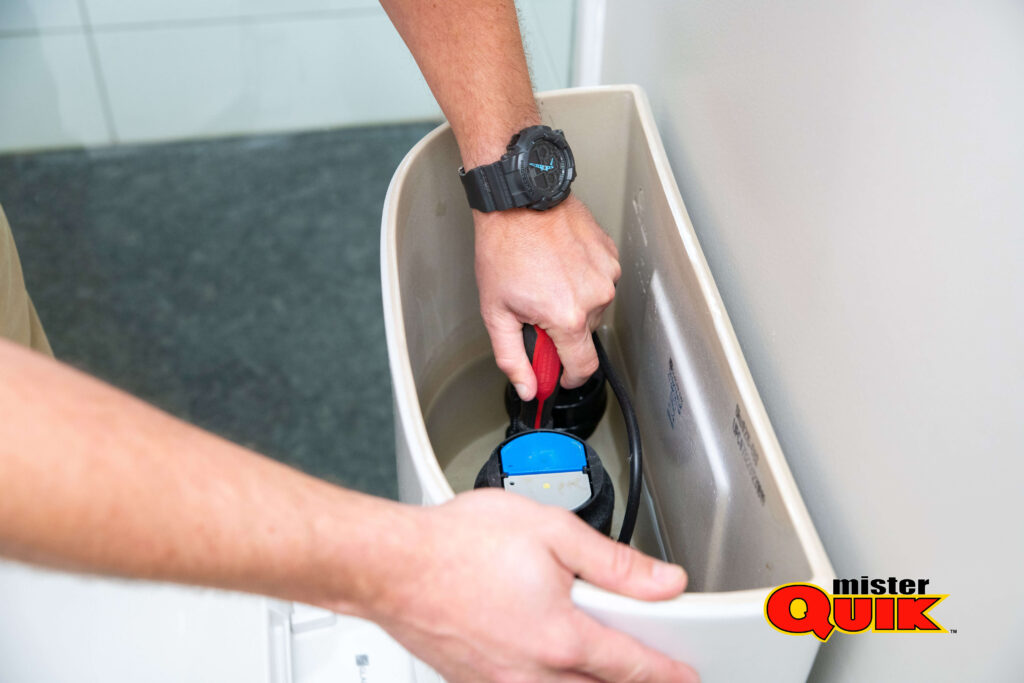

Emergency Plumbing
Mister Quik offers 24/7 emergency plumbing services to address urgent plumbing issues quickly and efficiently. This might include:
- Burst pipes: Immediate attention is crucial to minimize water damage.
- Severe leaks: Uncontrolled leaks can cause significant water damage and require prompt attention.
- Clogged sewer lines: Backups can be unsanitary and require immediate attention.
- No water: Losing complete water supply can be disruptive and needs prompt diagnosis and repair.
Types of Plumbing
A wide range of plumbing repairs can arise in homes and businesses, some of the most common include:
- Leaky faucets: This is a common issue that can waste water and increase your utility bills. It can be caused by worn-out washers or seals, or a faulty faucet.
- Running toilets: A running toilet can also waste a significant amount of water. It can be caused by a faulty flapper valve, a worn-out fill valve, or a leak in the tank.
- Clogged drains: Clogged drains are a nuisance that can cause water to back up and overflow. They can be caused by a buildup of hair, soap, grease, or other debris.
- Water heater problems: Water heaters can develop a variety of problems, such as leaking, not heating the water properly, or making strange noises.
- Sump pump problems: Sump pumps are used to remove water from basements and crawlspaces. They can develop problems such as failing to turn on, not pumping enough water, or making noise.
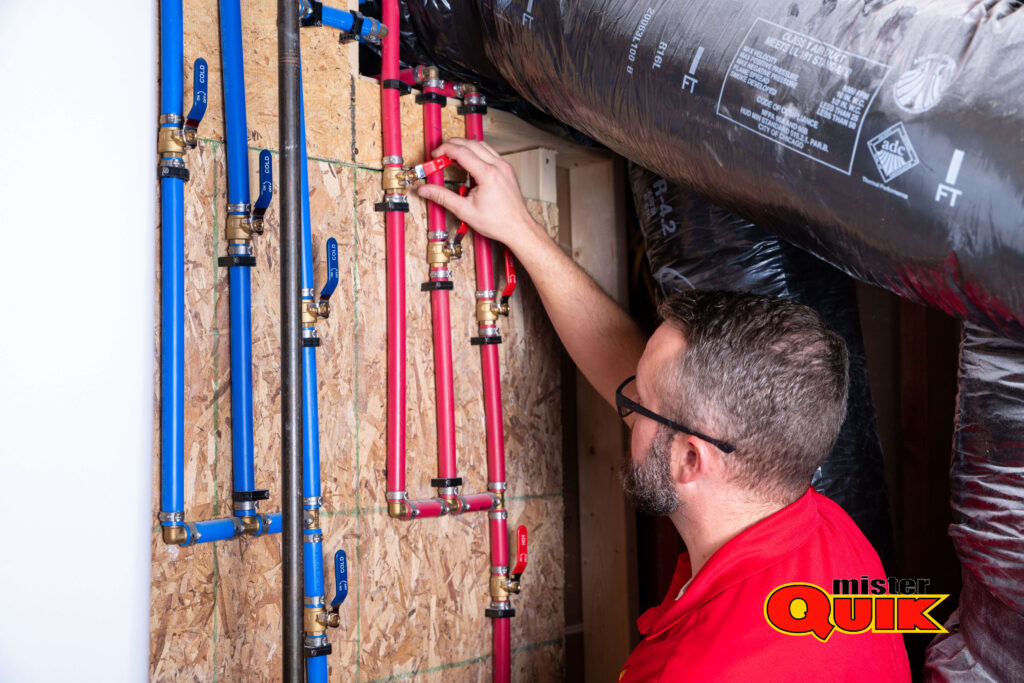

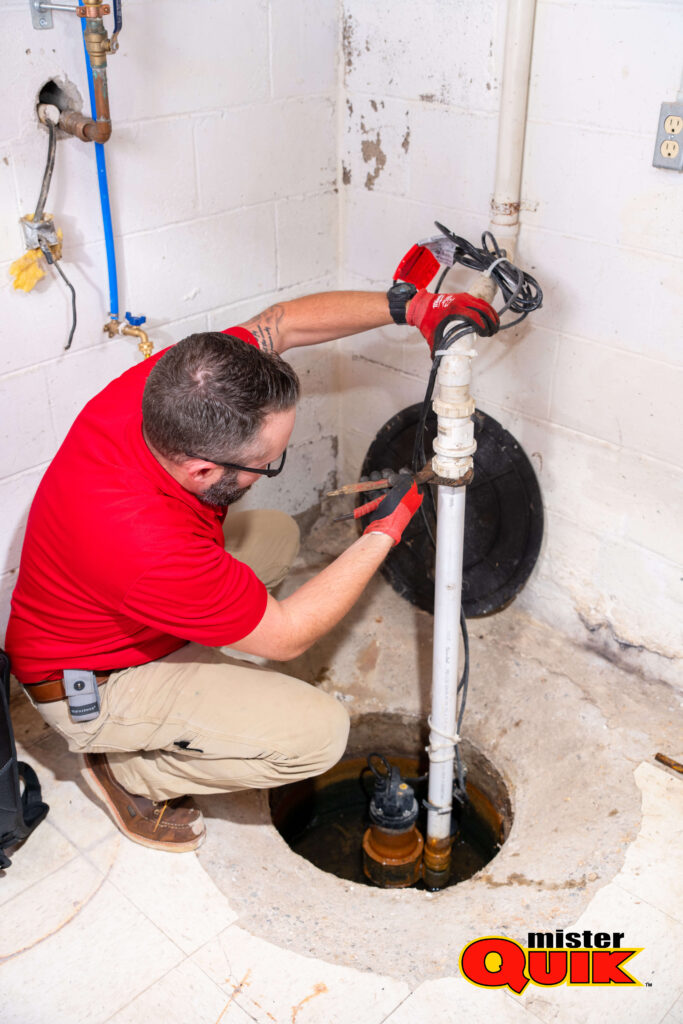


Water Leak Detection
If you suspect a leak but cannot locate it, a plumber can use specialized equipment, like electronic leak detectors, to identify the source of the leak accurately. This can help minimize damage and unnecessary repairs.
When choosing a plumber, consider factors like:
- Experience and reputation: Look for a licensed and insured plumber with a positive reputation in the Carmel area.
- Services offered: Ensure the plumber offers the specific services you need.
- Availability: Choose a plumber who is available when you need them, especially if it’s an emergency.
- Pricing: Get quotes from multiple plumbers to compare prices and find one that fits your budget.
By considering these factors and the services offered by Mister Quik, you can make an informed decision and find a reliable plumber to address your plumbing needs in Carmel, Indiana.
Carmel Drains & Sewers
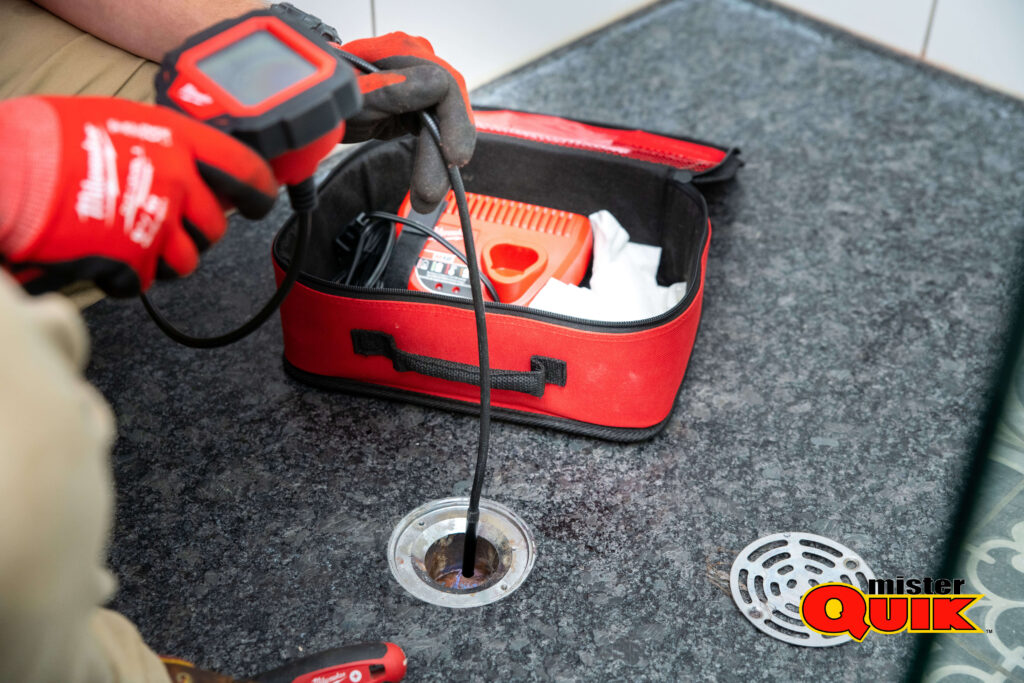


Drain Cleaning
Drain cleaning refers to the process of removing obstructions and clogs from drainage pipes, preventing or resolving slow-draining sinks, bathtubs, showers, and toilets. This is a crucial maintenance task to ensure the proper functioning of your plumbing system and prevent backups and potential water damage.
Common causes of clogged drains:
- Hair: Accumulated hair in shower and bathroom sink drains can cause significant clogs.
- Soap scum: Soap scum buildup can gradually constrict the flow of water in drains.
- Food scraps: Grease and food particles can solidify and create clogs in kitchen sink drains.
- Foreign objects: Accidental dropping of small objects like jewelry, toys, or cotton swabs can cause blockages.
- Tree roots: Infiltration of tree roots into sewer lines can cause major blockages.
Drain Unblocker
Drain unblocker is a synonym for drain cleaner. It refers to any tool, method, or product used to clear blockages in drains. Note: While drain unblockers can be helpful for minor clogs, always exercise caution when using chemical drain cleaners, as they can damage pipes and be harmful if not handled properly. Consider professional help for complex clogs or if unsure about safely using a specific drain unblocker.






Sewer Line Repair
Sewer lines are the underground pipes that carry wastewater away from your house to the municipal sewer system. Sewer line repair addresses various issues within the sewer line, ensuring proper drainage and preventing backups into your home.
Common signs of sewer line problems:
- Slow drains throughout the house: This can indicate a clog or blockage in the main sewer line.
- Gurgling sounds in the drains: This can be caused by air trapped in the sewer line due to a clog or vent pipe issue.
- Sewage backups in toilets, drains, or bathtubs: This is a serious issue requiring immediate attention from a qualified plumber.
- Settling or sinking foundation: In extreme cases, sewer line damage can cause the foundation to settle or crack.
Sewer line repair methods:
- Traditional trenching: Involves digging a trench to access the damaged section of the sewer line for repair or replacement.
- Trenchless sewer line replacement: Utilizes minimally invasive techniques like pipe bursting or pipe lining to replace the damaged sewer line without digging a trench.
Carmel Air Quality





Home Air Quality Testing
Maintaining good indoor air quality (IAQ) is crucial for your health and well-being. However, various pollutants and contaminants can negatively impact your home’s air quality. Home air quality testing is the first step towards identifying potential issues and addressing them effectively.
Benefits of testing:
- Identifying pollutants: Testing can reveal the presence of harmful pollutants like allergens, dust mites, mold spores, volatile organic compounds (VOCs), and even carbon monoxide.
- Understanding the source: Knowing the types of pollutants present can help you identify their potential sources and take corrective actions, such as addressing moisture issues that contribute to mold growth.
- Establishing a baseline: Initial testing provides a baseline for future comparisons, allowing you to track improvements after implementing air quality solutions.
Types of testing:
- DIY test kits: These readily available kits offer a basic assessment of common pollutants like allergens, mold spores, and VOCs.
- Professional testing: Certified professionals conduct a more comprehensive evaluation, using sophisticated equipment to analyze a wider range of pollutants and potential sources.
Air Purifiers
Air purifiers are devices that help remove contaminants and pollutants from the air, improving indoor air quality. They work in various ways depending on the technology employed:
- HEPA filters: These filters are highly effective in capturing small particles like allergens, dust mites, and mold spores.
- Activated carbon filters: These filters absorb gaseous pollutants like VOCs and smoke odors.
- Ionizers: These devices emit charged particles to attract and trap airborne pollutants.
- UV light purifiers: These use ultraviolet light to kill bacteria and viruses in the air.
Choosing an air purifier:
- Consider the size of your space: Choose a purifier with the appropriate capacity to effectively treat the air in your desired area.
- Target pollutants: Identify the specific pollutants you want to address and select a purifier with the appropriate technology (HEPA filter for allergens, carbon filter for VOCs, etc.).
- Air quality testing: Consider testing your air quality before and after purchasing an air purifier to evaluate its effectiveness in addressing your specific concerns.
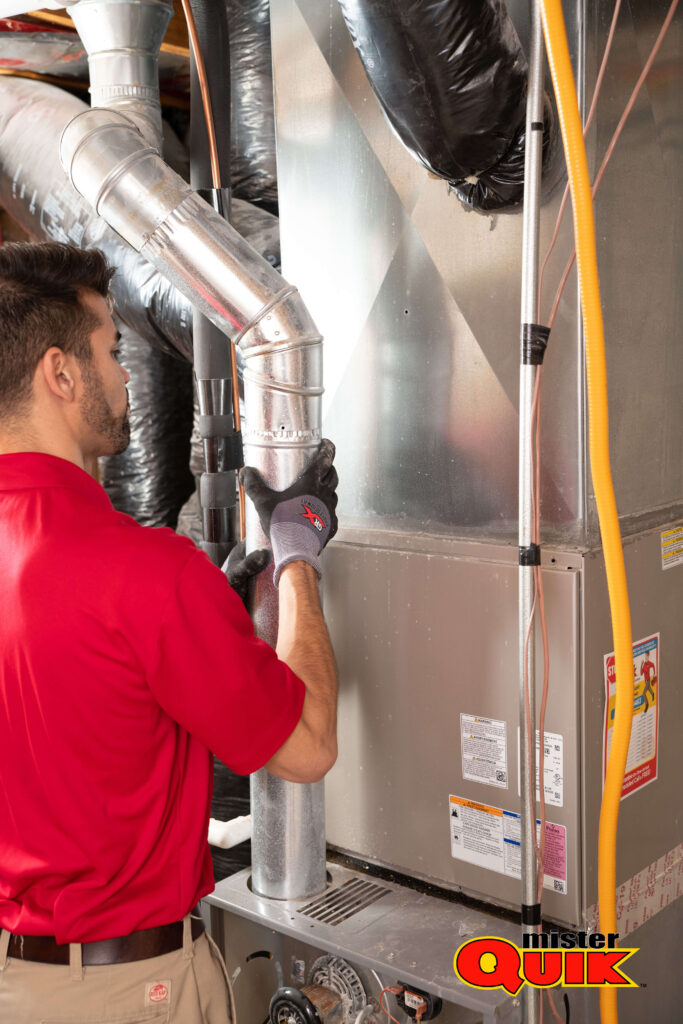




Air Filters
Air filters play a crucial role in maintaining good indoor air quality by trapping dust, pollen, and other airborne particles before they circulate throughout your home. They are typically used in conjunction with heating and cooling systems:
- Furnace filters: These filters capture airborne particles before they enter the heating system and potentially get circulated throughout your home.
- Air conditioner filters: These filters trap contaminants before they are cooled and distributed through the air vents.
Types of air filters:
- Fiberglass filters: These are the most common type, offering basic dust filtration but not as effective against smaller particles.
- Pleated filters: These offer better dust filtration compared to fiberglass filters due to their increased surface area.
- HEPA filters: As mentioned in air purifiers, these highly efficient filters capture the smallest particles, ideal for allergy and asthma sufferers.
Regularly replacing air filters is essential to maintain their effectiveness and ensure optimal performance of your heating and cooling systems.
Humidifier
Humidifiers add moisture to the air, which can be beneficial in dry climates or during winter months when indoor air can become dry and uncomfortable.
Benefits of humidifiers:
- Improved respiratory health: Can help alleviate symptoms of dry cough, congestion, and dry sinuses.
- Soothe dry skin: Helps prevent dry, itchy skin, especially during winter.
- Protect furniture: Can help prevent wood furniture from cracking and warping due to dry air.
Choosing a humidifier:
- Consider the size of your space: Choose a humidifier with the capacity to effectively add moisture to the entire room or desired area.
- Type of humidifier: Different types exist, such as ultrasonic, evaporative, and steam humidifiers. Each has advantages and disadvantages, so research the options to choose the one that best suits your needs.
- Maintenance: Regular cleaning and maintenance are crucial to prevent the growth of mold and bacteria within the humidifier.
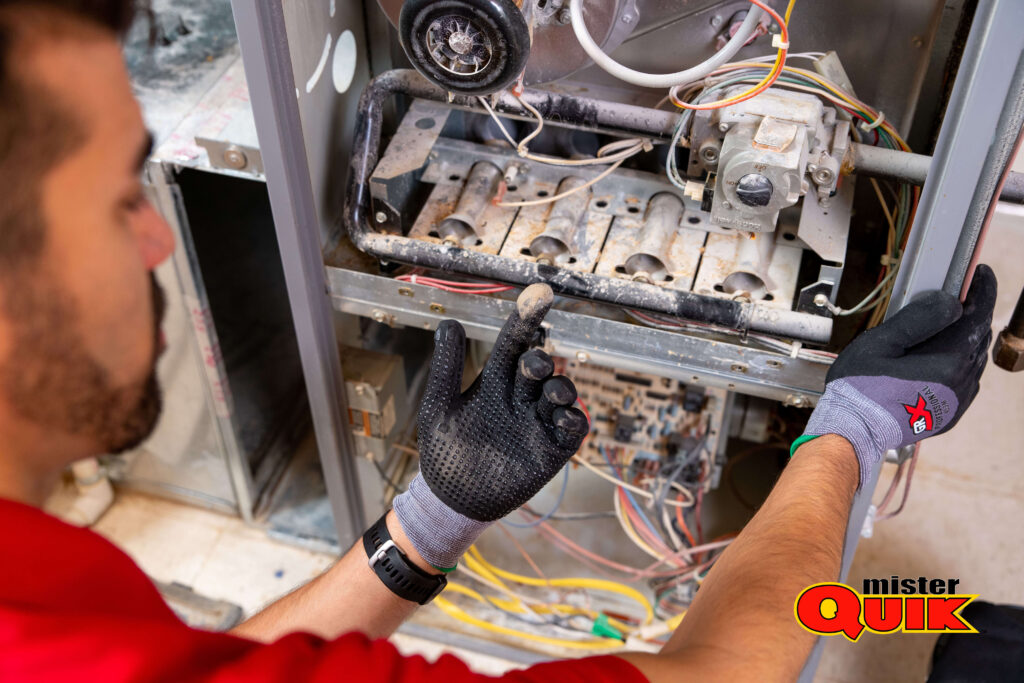






Dehumidifier
Dehumidifiers remove excess moisture from the air, which can be beneficial in humid climates or during summer months when high humidity levels can feel uncomfortable and promote mold growth.
Benefits of dehumidifiers:
- Reduce mold growth: By controlling humidity levels, dehumidifiers help prevent the growth of mold and mildew, which can trigger allergies and respiratory problems.
- Improve comfort: Lowering humidity levels can make your home feel cooler and more comfortable, especially during hot and humid summer months.
- Protect your belongings: Excess moisture can damage furniture, electronics, and other belongings. Dehumidifiers can help prevent this.
Carmel Electrical
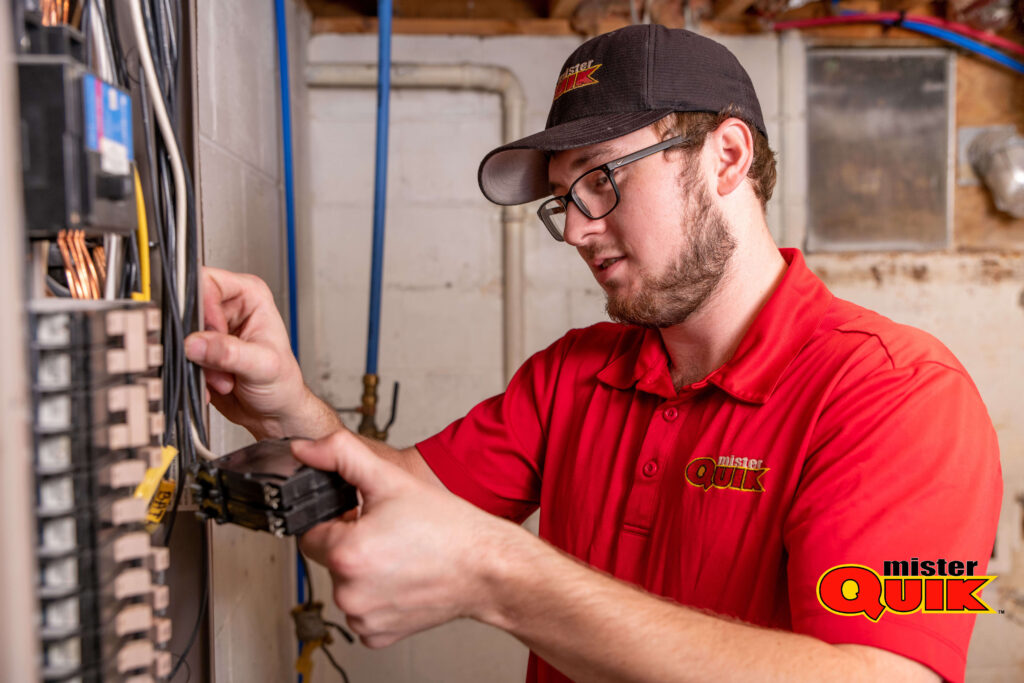

Electrical repair
Electrical repairs address various electrical problems in your home, ensuring safety and functionality. Common services include:
- Outlet and switch repair: Fixing faulty outlets, switches, and dimmers.
- Fixture repair or replacement: Repairing or replacing damaged light fixtures, ceiling fans, or other electrical devices.
- Troubleshooting electrical issues: Addressing problems like flickering lights, tripping breakers, or power outages.
- Circuit panel repair or upgrade: Repairing malfunctioning circuit panels or upgrading outdated ones to meet current safety standards.
Electrical Installation
Electrical installation involves adding new electrical components or systems to your home. This could include:
- Installing new outlets, switches, or fixtures: Adding additional outlets or switches in rooms, installing new lighting fixtures, or ceiling fans.
- Wiring for renovations or additions: Implementing electrical wiring for new construction, renovations, or additions to your property.
- Panel upgrades: Upgrading your electrical panel to meet increased electrical demands or comply with current safety codes.
- Home theater wiring: Installing dedicated circuits and outlets for entertainment systems.
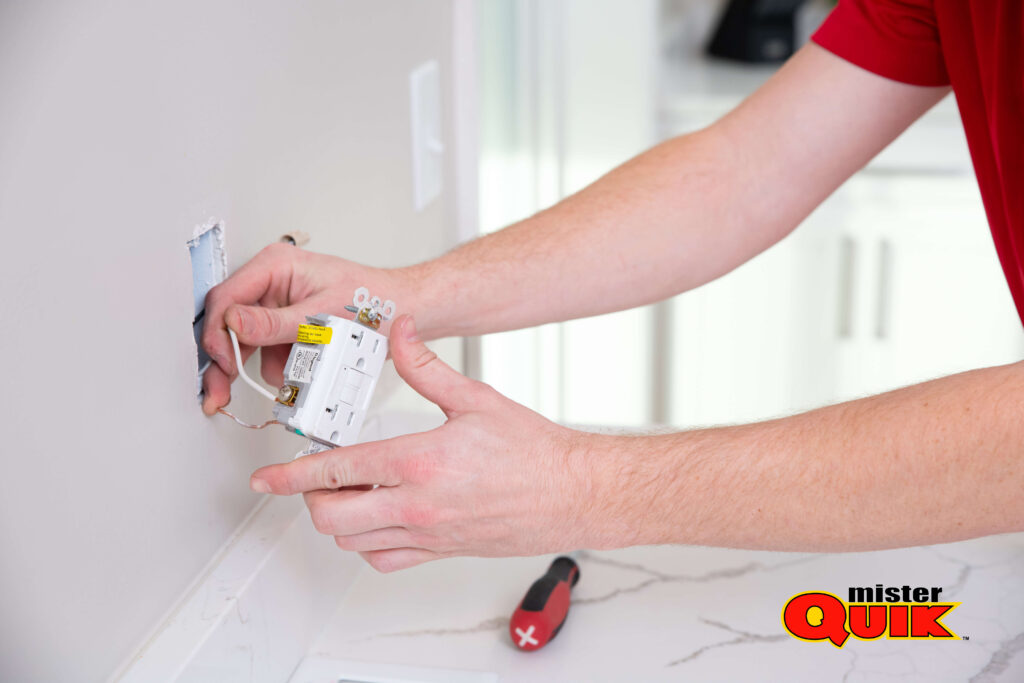

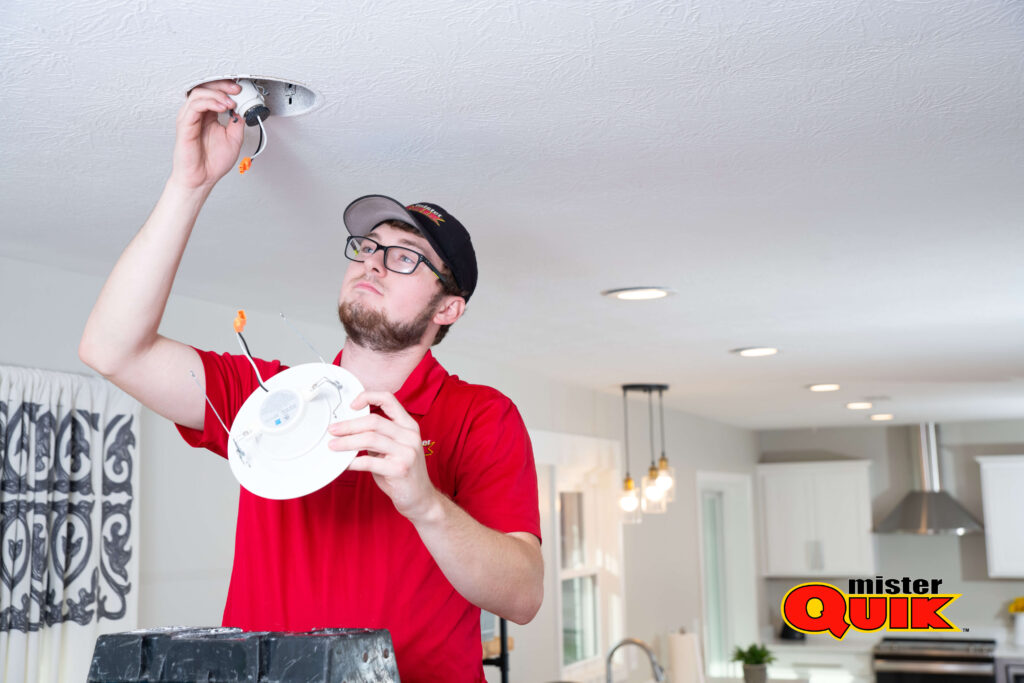

Home electrical inspection
A home electrical inspection thoroughly evaluates the safety and functionality of your electrical system. This includes:
- Inspecting wiring: Checking for damaged, outdated, or improperly installed wiring.
- Testing outlets and switches: Ensuring proper grounding and functionality.
- Inspecting the circuit panel: Verifying its condition and capacity.
- Identifying potential safety hazards: Recognizing any issues that could pose electrical hazards.
Rewiring
Rewiring is the complete or partial replacement of your home’s electrical wiring. This may be necessary due to:
- Outdated wiring: Older homes might have outdated wiring systems that are no longer safe or adequate for modern electrical demands.
- Aluminum wiring: Homes built in the 1960s and 1970s might have aluminum wiring, which can pose safety hazards and require replacement with copper wiring.
- Fire damage or other major electrical issues: Extensive damage to the electrical system might necessitate rewiring for safety reasons.
When choosing an electrician, consider factors like:
- Licensing and insurance: Ensure the electrician is licensed and insured in the state of Indiana.
- Experience and reputation: Look for an electrician with experience in the kind of electrical work you need and a positive reputation in the Carmel area.
- Services offered: Choose an electrician who offers the specific services you require.
- Availability: Choose an electrician who is available when you need them, especially if it’s an emergency.
- Pricing: Get quotes from multiple electricians to compare prices and find one that fits your budget.
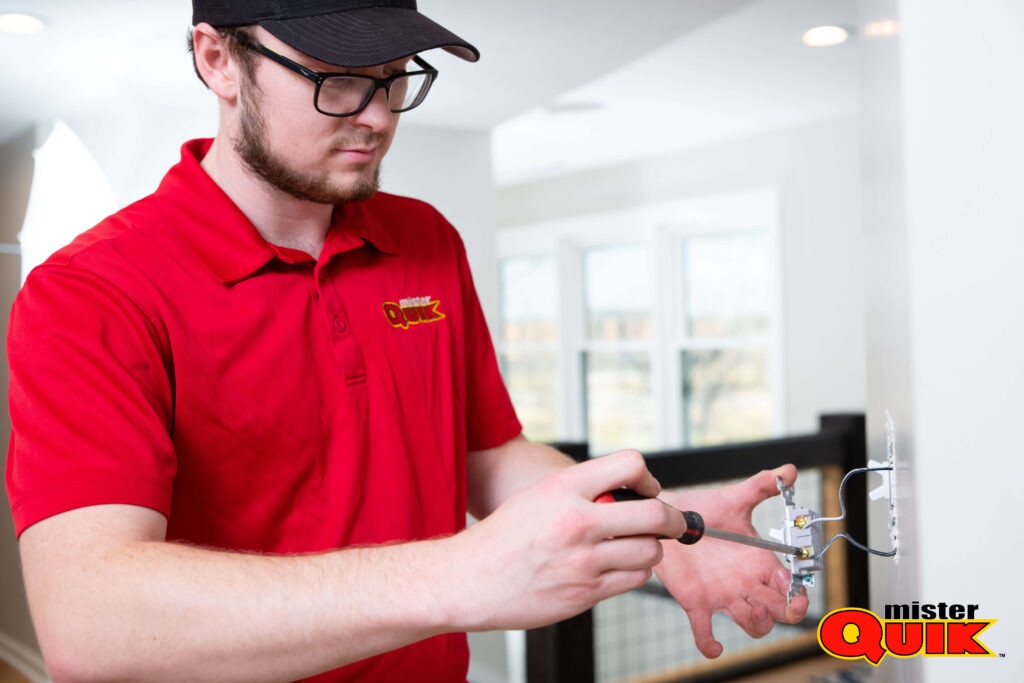

Air Handler
4.8 7,000+ reviews We’re in your neighborhood Indianapolis Call now! we’re here 24/7 Westfield Air Handler Schedule on your own without making a call. Click
Burrrr-st the Myth: Keep Your Pipes Flowing Through Winter’s Grip
Old Man Winter is back, and his icy touch extends beyond frost on windows and frosty mornings. One hidden danger lurks beneath the surface –
Conquer the Cold Snap: Why a Furnace Tune-Up is Your Winter Weapon
Old Man Winter is knocking, and his icy grip can bring more than just frost on your windows. It can send your energy bills skyrocketing
Safeguard Your Electrical System: 1 Must-Check this January!
As winter descends upon us, with temperatures dropping and snowflakes dancing in the crisp air, our homes transform into cozy sanctuaries against the cold. It’s








